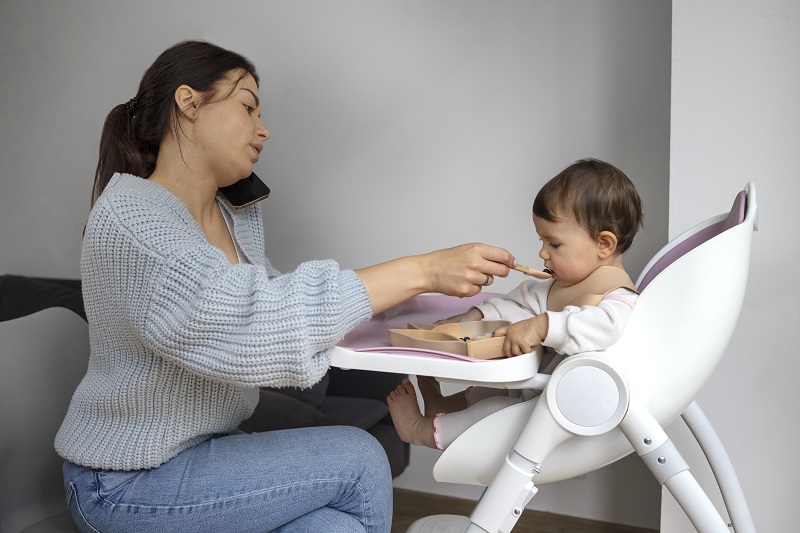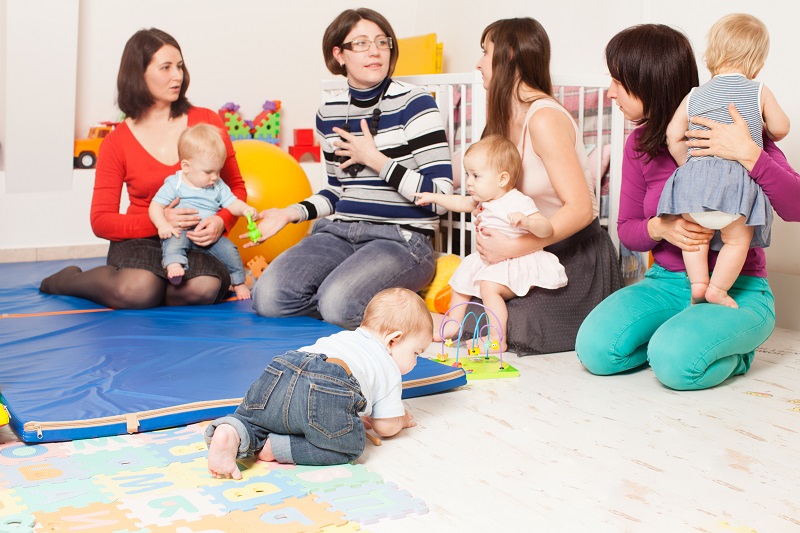
Common Mistakes New Parents Make and How to Avoid Them
One of the most fulfilling and challenging experiences in life is becoming a parent. Although feeling overburdened is standard, many new parents unintentionally make blunders that can impact their health and also the development of their unborn child. With the correct advice, many typical parenting pitfalls can be avoided, from feeding decisions to sleep schedules
In this article, we’ll explore the most frequent mistakes new parents make and offer practical tips to help you navigate parenthood confidently.
1. Over-scheduling and Over-Stimulating the Baby

Filling a baby’s schedule with activities, visits, and outings is tempting. However, newborns and young infants have delicate nervous systems and thrive on predictability and calm.
Overstimulation can manifest as fussiness, irritability, difficulty sleeping, and even digestive upset. In the beginning, a baby’s world should be relatively simple. Focus on creating a consistent routine for feeding, sleeping, and quiet playtime. This predictability provides security and helps regulate the baby’s developing systems.
Limit visitors, especially in the first few weeks, and gradually introduce new experiences. Pay close attention to your baby’s cues: turning away, yawning, jerky movements, or increased fussiness can indicate that the baby is becoming overstimulated.
When you notice these signs, create a calm environment, reduce stimulation, and offer comfort. Remember, prioritizing rest and quiet time is crucial for your baby’s development and well-being.
2. Comparing Your Baby to Others

Social media and well-meaning friends and family can inadvertently create a pressure cooker of comparison. It’s easy to get caught up in comparing your baby’s milestones to those of others. However, each baby develops at their own unique pace.
Focusing on comparisons can lead to unnecessary anxiety and self-doubt. Resist the urge to compare your baby’s development to others, primarily based on curated online content.
Celebrate each milestone your baby reaches, no matter how small. Consult your pediatrician if you have genuine concerns about your baby’s development.
They can offer personalized guidance & address any specific concerns. Remember, focusing on your baby’s journey and celebrating their unique progress is far more beneficial than engaging in comparisons.
3. Neglecting Your Own Needs (Self-Care)

New parenthood is incredibly demanding, often leaving little time for personal needs. However, neglecting your well-being can negatively impact your ability to care for your baby. Exhaustion, irritability, and even postpartum depression or anxiety can result from neglecting self-care.
Prioritize self-care, even in small ways. This might involve taking a short nap while the baby sleeps, enjoying a warm shower, or reading a book for a few minutes. Ask for help from your partner, family, or friends to dedicate time to yourself.
Even short breaks can significantly improve mood and energy levels. Keep in mind the example of donning your oxygen mask before assisting others: In order to be your best parent, you must look after yourself.
4. Not Asking for or Accepting Help

Many new parents feel pressured to handle everything independently. However, accepting help is a sign of wisdom, not weakness. Trying to manage everything alone can quickly lead to overwhelm and burnout.
Don’t hesitate to ask for help from your partner, family members, friends, or even professional support services. This might include help with meal preparation, laundry, grocery shopping, or simply having someone hold the baby so you can take a break.
If possible, create a support network before the baby arrives and identify people you can rely on. Accepting help allows you to recharge and be more present for your baby.
5. Ignoring Postpartum Mental Health

Postpartum depression (PPD) and anxiety (PPA) are common and treatable conditions that affect many new parents.
However, stigma and a lack of awareness often prevent people from seeking help. It’s essential to recognize that experiencing sadness, anxiety, irritability, or other mood changes after giving birth is not a sign of weakness or failure.
Be aware of the signs and symptoms of PPD and PPA, which can include persistent sadness, hopelessness, anxiety, difficulty sleeping, changes in appetite, and feelings of guilt or worthlessness.
If you experience these symptoms, talk to your doctor or a mental health professional. Seeking help is a sign of strength and is crucial for your well-being and your baby’s development.
6. Not Communicating Effectively with Your Partner

The arrival of a baby drastically changes the dynamics of a relationship. Open & honest communication is necessary for understanding this transition successfully. Lack of communication can lead to resentment, misunderstandings, and conflict.
Make time for regular conversations with your partner, even if it’s just for a few minutes each day. Discuss your needs, feelings, and concerns openly and honestly.
Share responsibilities fairly and support each other through the challenges of new parenthood. Remember that you are a team, and working together is key to navigating this new chapter.
7. Relying Too Heavily on Screen Time for Baby Entertainment

While screens can be a temporary distraction, excessive screen time can harm the development of babies and young children.
Prolonged screen exposure can interfere with cognitive development, language skills, social-emotional development, and attention span. Therefore, it is important to limit screen time for babies and young children as much as possible, especially in the first few years of life.
Prioritize interactive play, reading, singing, and other activities stimulating their senses and promoting healthy development.
8. Not Establishing a Consistent Sleep Routine

Establishing a consistent sleep routine is crucial for the well-being of both the baby and the parents. While newborns have irregular sleep patterns, a consistent bedtime routine can help regulate their sleep cycles.
A regular schedule lets the baby know when it’s time to relax and get ready for sleep. A warm bath, a mild massage, a bedtime reading, or some alone time with soft lighting might all fall under this category. The secret is consistency.
Even on weekends, maintain a similar sleep schedule to help regulate your baby’s internal clock.
9. Overspending on Baby Gear

The baby product market is vast, and it’s easy to get caught up in the hype and spend excessive money on unnecessary items.
While some baby gear can be helpful, many items are simply marketing ploys. Focus on purchasing essential items like a safe crib, car seat, and clothing.
Consider borrowing or buying used items whenever possible. Babies outgrow things quickly, so buying everything brand new can be a significant financial burden.
Prioritize quality over quantity and focus on items necessary for your baby’s safety and comfort.
10. Not Trusting Your Parental Instincts

New parents are frequently inundated with well-intentioned advice from strangers, family members, and friends. Trusting one’s instincts as a parent is crucial, even when advice might be beneficial.
You know your baby best. As you bond with your baby, you will understand its unique cues and needs. Trust your intuition and make decisions that feel right for you and your family.
If you have concerns, consult with your pediatrician or other qualified healthcare professionals, but ultimately, trust your judgment.
11. Ignoring the Importance of Skin-to-Skin Contact

Skin-to-skin contact, known as kangaroo care, has numerous benefits for babies and parents. It helps regulate the baby’s temperature, heart rate, and breathing, promotes bonding, and can even improve breastfeeding success.
Make time for regular skin-to-skin contact with your baby, especially in the early weeks and months. This might involve holding your baby against your bare chest or wearing them in a sling or carrier.
12. Not Taking Time to Bond with Your Baby

The early months are a crucial period for bonding with your baby. This bonding lays the foundation for a strong and healthy parent-child relationship.
Make time for activities that promote bonding, such as cuddling, talking, singing, and playing with your baby.
Respond promptly and consistently to their cues and needs. These early interactions are essential for their emotional and social development.
13. Focusing Too Much on “Perfect” Parenting

There is no such thing as a perfect parent. Striving for perfection can lead to unwanted stress and self-criticism. Focus on being a “good enough” parent, which means providing love, care, and support to your child.
Accept the imperfections and learn from your mistakes. Recall that parenting is a journey, not a destination.
14. Not Preparing for the Impact on Your Relationship

The arrival of a baby significantly impacts the dynamics of a romantic relationship. It’s essential to prepare for these changes and prioritize your relationship. Even if it’s just a peaceful evening at home once the baby is sleeping, schedule time for date evenings.
Talk openly & honestly with your partner about your wants and feelings. Remember that keeping your relationship intact is essential to provide your child a safe and nurturing environment.
15. Not Seeking Support for Feeding Challenges

Feeding, whether breastfeeding or formula feeding, can present challenges for new parents.
Never be afraid to ask for help from support groups, medical experts, or lactation consultants. They can answer any questions you may have and offer helpful advice.
Remember that every baby and feeding journey is different; the most important thing is to find what works best for you and your baby.
16. Overfeeding or Underfeeding

Feeding issues can be a source of anxiety for new parents, who may worry about either overfeeding or underfeeding their baby.
Misunderstanding hunger cues can lead to feeding too frequently or not enough. Watching for signs like rooting, sucking motions, or crying can help identify when the baby is genuinely hungry.
Conversely, frequent spitting up or fussiness after feeding could indicate overfeeding. Regular pediatric check-ups can provide reassurance and guidance on portion sizes and feeding frequency.
17. Neglecting Baby-Proofing

Baby-proofing often gets postponed until the baby starts crawling, but preparing early can prevent accidents. Parents sometimes underestimate how quickly babies can become mobile and curious.
Ensuring safety measures like securing furniture, installing outlet covers, and using baby gates can create a safe environment from the start.
Avoid placing small objects or choking hazards within reach, and stay proactive as your baby grows and explores.
18. Delaying Pediatric Check-Ups

Regular pediatric check-ups are crucial for monitoring a baby’s health and development. Some parents delay these visits, assuming their baby is fine.
However, routine visits allow doctors to track growth milestones, administer vaccines, and address concerns early. Staying consistent with check-ups ensures your baby receives the best care.
19. Not Documenting Milestones

Parenting goes by quickly, and many parents regret not capturing key moments. Documenting milestones through photos, journals, or memory books helps preserve these precious memories.
While it’s easy to get caught up in the daily routine, taking a moment to celebrate and record achievements can create lasting keepsakes.
20. Take a Newborn Care Class

Enrolling in a newborn care class before your baby arrives can be incredibly beneficial. These classes provide hands-on guidance on essential parenting skills such as diaper changing, swaddling, and understanding your baby’s sleep patterns.
These classes often cover feeding techniques, baby hygiene, and recognizing signs of common health issues. They build confidence and help parents feel more prepared to care for a newborn.
Additionally, attending such classes together as a couple can foster teamwork and shared learning, which is vital during the early stages of parenthood.
21. Join a New Parent Support Group

Connecting with other new parents through a support group can provide emotional support, encouragement, and practical advice. Parenting can feel isolating at times, especially during those sleep-deprived weeks.
Being part of a support group allows you to share experiences, seek guidance on common parenting challenges, and gain reassurance that you’re not alone.
Many groups also offer guest speakers and expert-led discussions on parenting topics, which can provide additional helpful insights.
The camaraderie built in these groups can create lasting friendships supporting you throughout your parenting journey.
The Parting Notes
The experience of being a new parent is a life-changing one that is both joyful and challenging. By understanding these common mistakes and implementing the suggested solutions, you can more confidently navigate the early stages of parenthood and create a strong foundation for a loving and supportive family.
Remember, every parent makes mistakes. The key is to learn from them, be kind to yourself, and build a loving relationship with your child.





